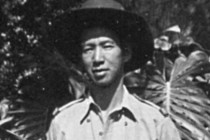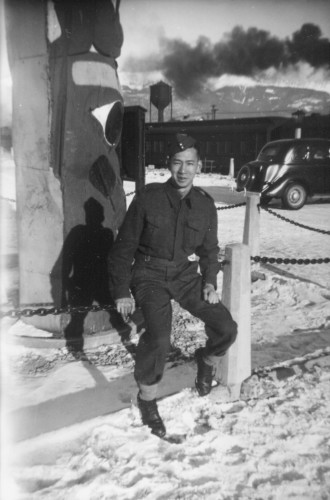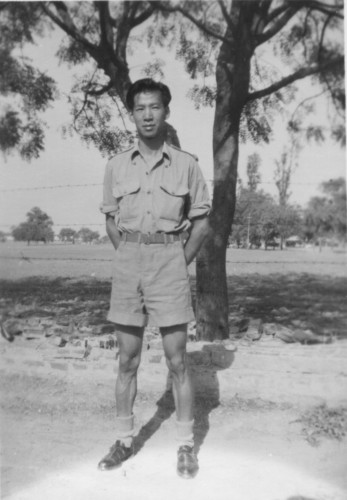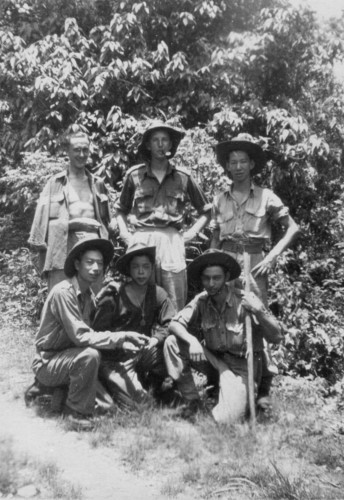
Raymond “Buster” Chan was born in Vancouver on March 8, 1920. He was the youngest of four children.
To support himself, Chan toiled as a welder in the dry docks of North Vancouver. However, like many other young Chinese Canadians at that time, Chan longed for adventure. And when the Second World War broke out, he did not hesitate to march over to the local Army recruiting office and offer his services.
And, like so many other Chinese Canadians, Chan was turned down not once … but twice, because of his race.

Raymond Chan in B.C.
It wasn’t until later in the war, in 1944, when the British were eager to support resistance movements in Japanese-occupied areas of South East Asia, that Chan was finally considered useful to his country. Being Chinese, it was thought he could easily blend into the civilian populations of these far off countries. His mission would be to gather intelligence and support sabotage operations.
Chan volunteered for Force 136 — which came under the British Intelligence Special Operations Executive (SOE). He quickly found himself whisked off to Chilliwack, British Columbia to do basic training. There he was joined by a number of other enthusiastic Chinese Canadian young men.
After about two months training in the Fraser Valley, Chan was shipped to England and then took a long boat ride to India. He was stationed in India for several months, where he specialized in wireless operations.

Raymond Chan in India
